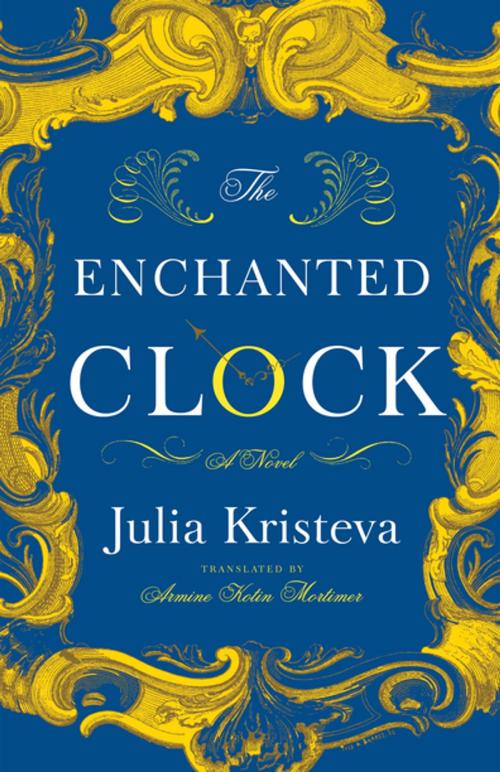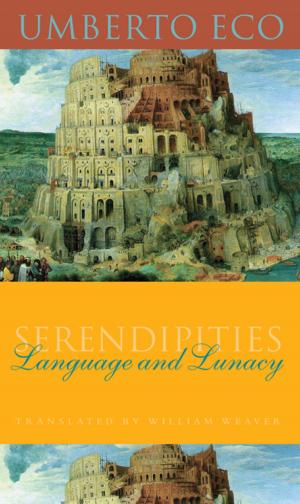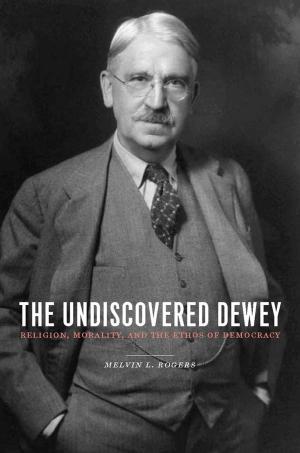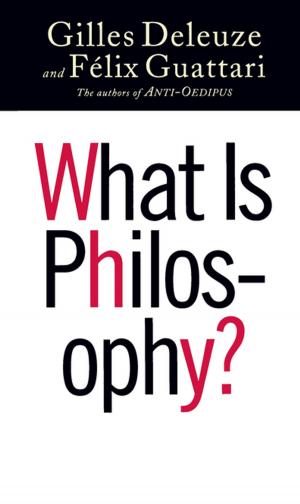| Author: | Julia Kristeva | ISBN: | 9780231542739 |
| Publisher: | Columbia University Press | Publication: | January 2, 2018 |
| Imprint: | Columbia University Press | Language: | English |
| Author: | Julia Kristeva |
| ISBN: | 9780231542739 |
| Publisher: | Columbia University Press |
| Publication: | January 2, 2018 |
| Imprint: | Columbia University Press |
| Language: | English |
In the Palace of Versailles there is a fabulous golden clock, made for Louis XV by the king’s engineer, Claude-Siméon Passemant. The astronomical clock shows the phases of the moon and the movements of the planets, and it will tell time—hours, minutes, seconds, and even sixtieths of seconds—until the year 9999. Passemant’s clock brings the nature of time into sharp focus in Julia Kristeva’s intricate, poetic novel The Enchanted Clock.
Nivi Delisle, a psychoanalyst and magazine editor, nearly drowns while swimming off the Île de Ré; the astrophysicist Theo Passemant fishes her out of the water. They become lovers. While Theo wonders if he is descended from the clockmaker Passemant, Nivi’s son Stan, who suffers from occasional comas, develops a passion for the remarkable clock at Versailles. Soon Nivi is fixated on its maker. But then the clock is stolen, and when a young writer for Nivi’s magazine mysteriously dies, the clock is found near his body. The Enchanted Clock combines past and present, jumping back and forth between points of view and across eras from eighteenth-century Versailles to the present day. Its stylistically inventive narrative voices bring both immediacy and depth to our understanding of consciousness. Nivi’s life resembles her creator’s in many respects, coloring Kristeva’s customary erudition with autobiographical poignancy. Part detective mystery, part historical fiction, The Enchanted Clock is a philosophically and linguistically multifaceted novel, full of poetic ruminations on memory, love, and the transcendence of linear time. It is one of the most illuminating works of one of France’s great writers and thinkers.
In the Palace of Versailles there is a fabulous golden clock, made for Louis XV by the king’s engineer, Claude-Siméon Passemant. The astronomical clock shows the phases of the moon and the movements of the planets, and it will tell time—hours, minutes, seconds, and even sixtieths of seconds—until the year 9999. Passemant’s clock brings the nature of time into sharp focus in Julia Kristeva’s intricate, poetic novel The Enchanted Clock.
Nivi Delisle, a psychoanalyst and magazine editor, nearly drowns while swimming off the Île de Ré; the astrophysicist Theo Passemant fishes her out of the water. They become lovers. While Theo wonders if he is descended from the clockmaker Passemant, Nivi’s son Stan, who suffers from occasional comas, develops a passion for the remarkable clock at Versailles. Soon Nivi is fixated on its maker. But then the clock is stolen, and when a young writer for Nivi’s magazine mysteriously dies, the clock is found near his body. The Enchanted Clock combines past and present, jumping back and forth between points of view and across eras from eighteenth-century Versailles to the present day. Its stylistically inventive narrative voices bring both immediacy and depth to our understanding of consciousness. Nivi’s life resembles her creator’s in many respects, coloring Kristeva’s customary erudition with autobiographical poignancy. Part detective mystery, part historical fiction, The Enchanted Clock is a philosophically and linguistically multifaceted novel, full of poetic ruminations on memory, love, and the transcendence of linear time. It is one of the most illuminating works of one of France’s great writers and thinkers.















